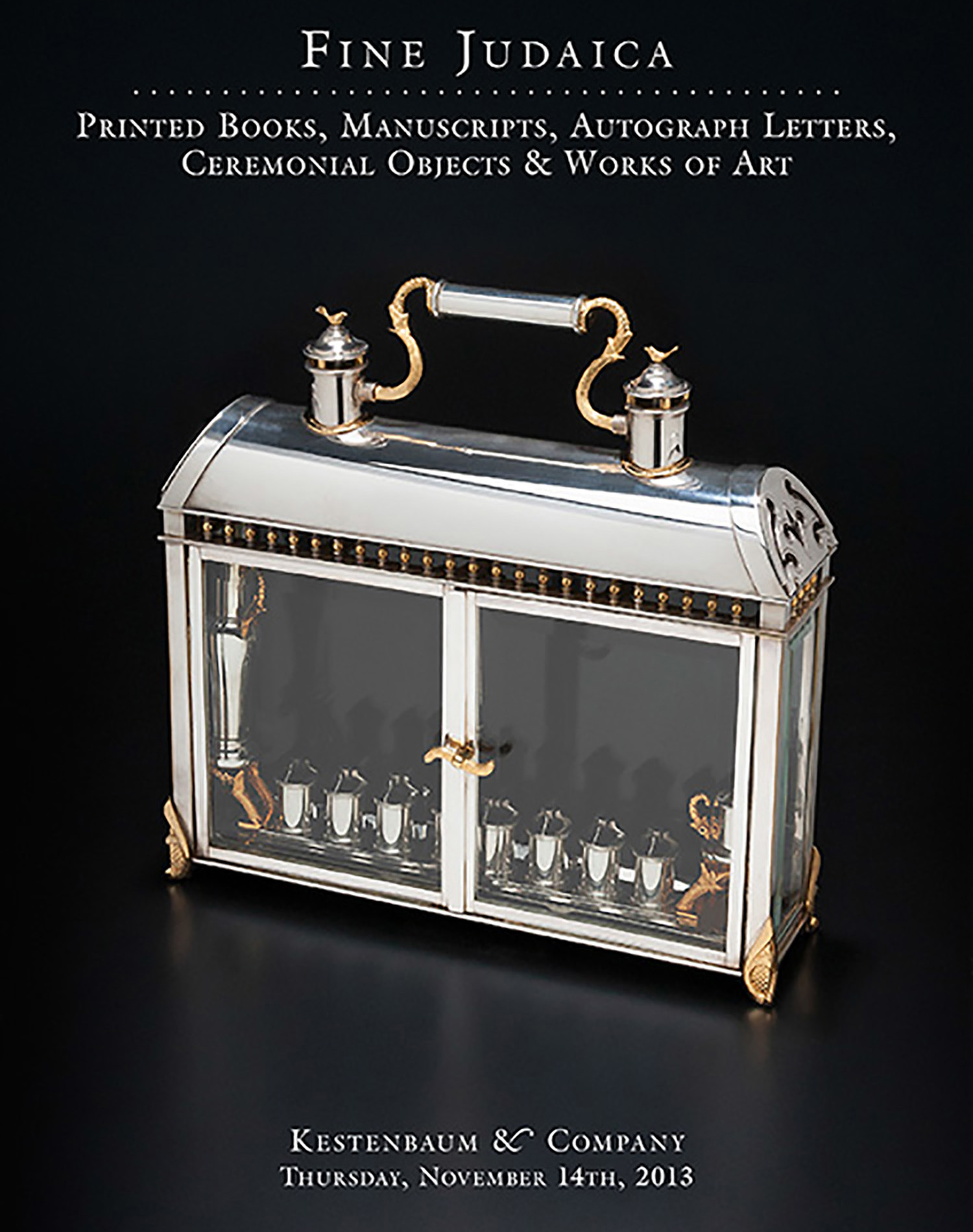Laws Made and Passed by the General Assembly of the State of Maryland. Includes: “<<An Act for the Relief of the Jews of Maryland>> ” (Vol. I pp. 154-55; and see vol. II p. 21).

AUCTION 60 |
Thursday, November 14th,
2013 at 1:00
Fine Judaica: Printed Books, Manuscripts, Autograph Letters, Graphic Art and Ceremonial Objects
Lot 14
(AMERICAN JUDAICA).
Laws Made and Passed by the General Assembly of the State of Maryland. Includes: “<<An Act for the Relief of the Jews of Maryland>> ” (Vol. I pp. 154-55; and see vol. II p. 21).
Annapolis: J. Hughes 1824-25
Est: $5,000 - $7,000
<<exceptionally important for the achievement of full civil rights for jews in the united states.>>
While the Federal Constitution and Bill of Rights guaranteed full equality to American Jews, its provisions were not binding on state governments prior to the passage of the Fourteenth Amendment in 1868.
In Maryland there was a protracted struggle to invest the Jews with political equality. Maryland’s first Constitution, passed in 1776, retained a colonial statute requiring all public servants to invoke a Christian oath. Not only were governmental officials and members of the legislature considered public servants, but so were lawyers, militia officers and jurors. Thus, a Jew was deprived of a possible professional livelihood and opportunity to demonstrate loyalty to his country. Maryland Jews protested their inferior status as early as 1797, but it was not until 1825-6, when the Jew Bill was confirmed by the legislature, that Jews were fully relieved of social prejudices.
On Feb. 26, 1825 the Jew Bill, an act “for the relief of the Jews in Maryland,” was passed by the House of Delegates by a vote of twenty-six to twenty-five. The bill provided that “every citizen of this state professing the Jewish religion” who shall be appointed to any office of profit or trust shall, in addition to the required oaths, make and subscribe a declaration of his belief in a future state of rewards and punishments instead of the declaration now required by the government of the state.
The bill was championed by legislator Thomas Kennedy, who declared: “This bill ought to pass even if it was only to do justice to the long oppressed Hebrew; but it is not for their benefit alone; it is establishing a general principle… approved by the patriots of the Revolution, sanctioned by wisdom and virtue and tested by experience… Let us pass this bill… even on a dying pillow it will comfort us to think that we have done at least one good act in our lives… establishing religious freedom in Maryland.”
See S. F. Chyet, The Political Rights of the Jews in the United States, in: American Jewish Archives 10.1 (Apr. 1958): 14-75; Edward Eitches, Maryland’s Jew Bill, in: American Jewish Historical Quarterly 60.3 (Mar. 1971): 258-79.
